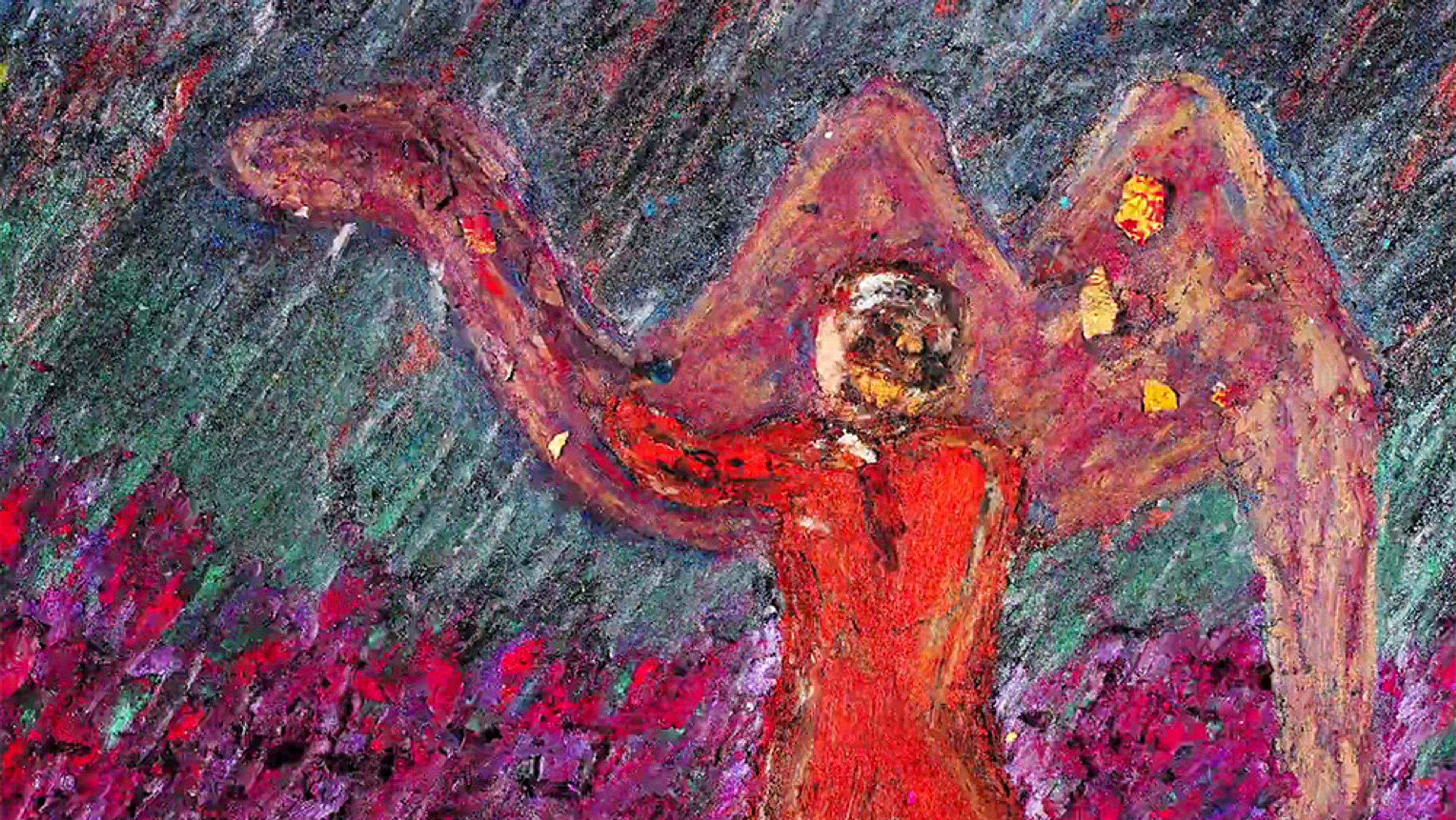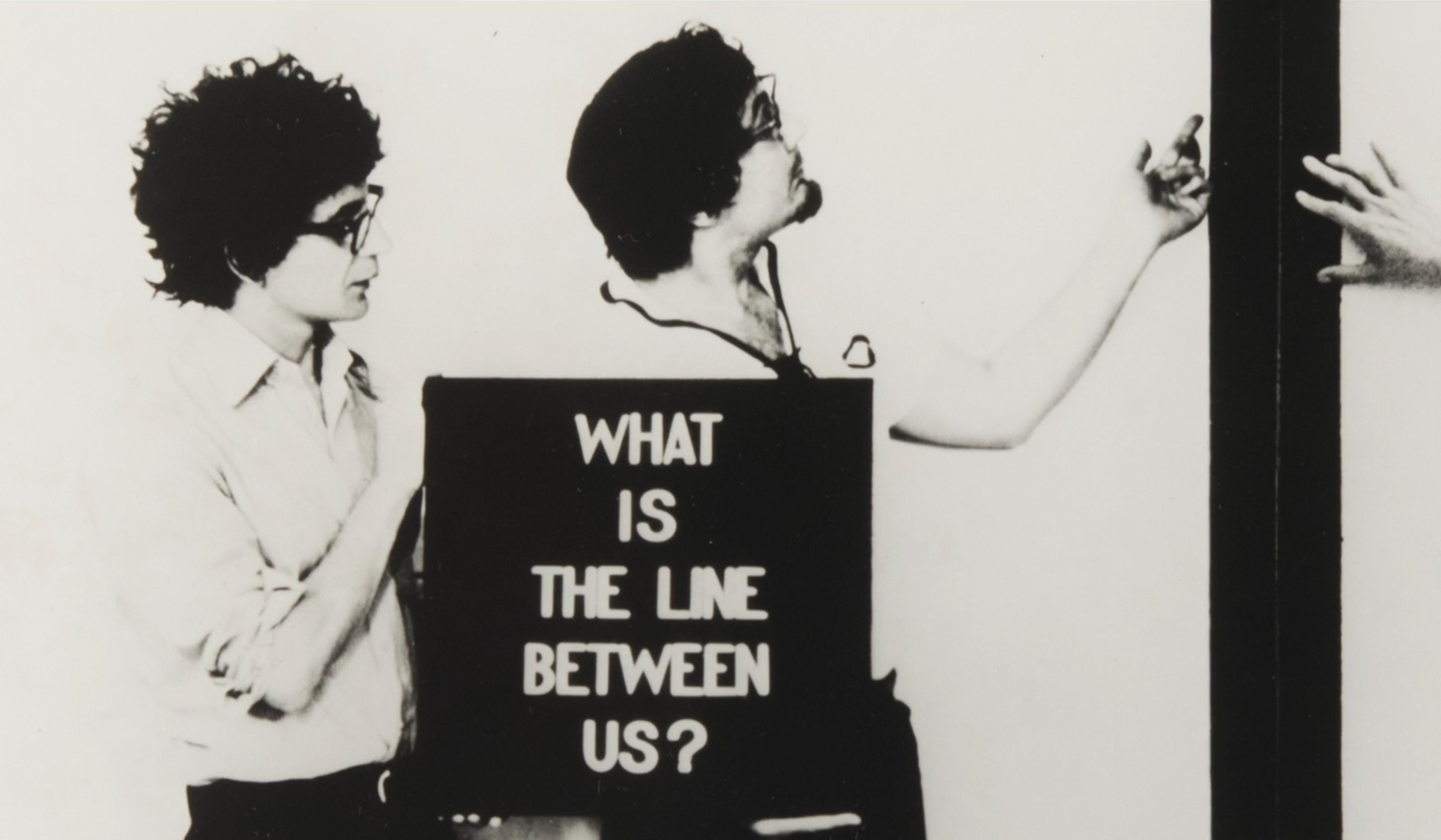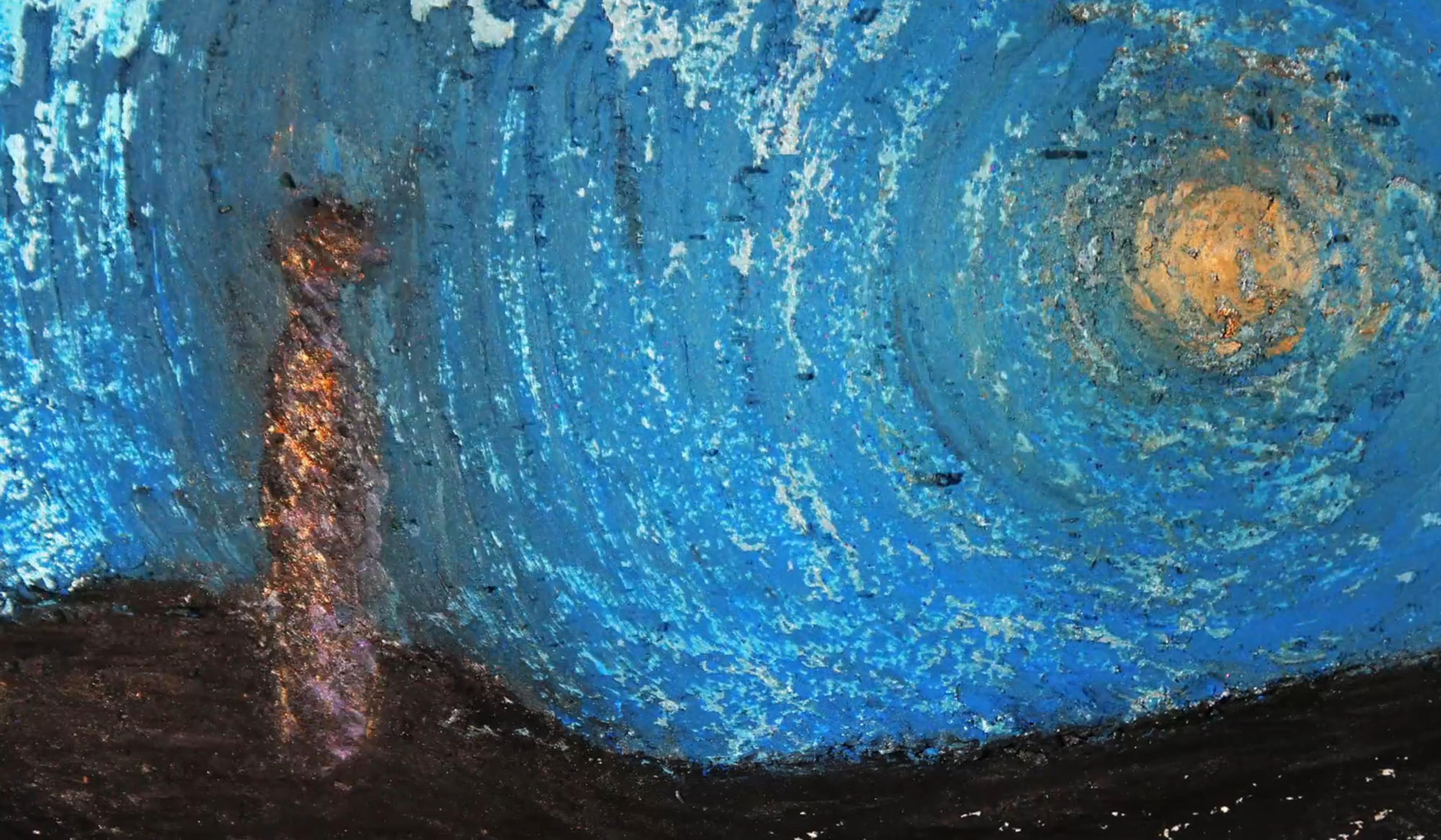In 1942, Nazi forces captured a portion of the Kalmyk Autonomous Soviet Socialist Republic, home to the Kalmyks – an ethnic group with a language and heritage rooted in Mongolia, most of whom were Tibetan Buddhists. While Kalmyks were predominantly loyal to the Soviet Union throughout the Second World War, and many fought in the Red Army, a small group volunteered to join the Nazi army. Following the Soviet Union’s recapture of Kalmyk territory in December 1943, Soviet authorities declared all Kalmyk people guilty of cooperation with the Nazis and ordered their deportation and exile to Siberia. By the time they were allowed to return home in 1957, roughly half of the Kalmyks had died. The Montreal-based animator Alisi Telengut’s short film Nutag – Homeland is a requiem for the many lives lost during the widespread displacement of the Kalmyk people. Using imagery hand-painted frame by frame, the aching visual poem reflects on a largely forgotten tragedy by blending symbolic motifs with a timeless, mournful folk overtone.
Painted frame by frame, a vivid animation restores a history lost to deportation
Director: Alisi Telengut

videoRituals and celebrations
The songs that help a mother camel accept her baby after a painful childbirth
4 minutes

videoArt
The irreverent duo who thumbed their noses at the Soviet Union and the US art world
11 minutes

videoAnthropology
Does Mogi’s future lie with her horses on the Mongolian steppe, or in the city?
16 minutes

videoHistory
In Stalin’s home city in Georgia, generations clash over his legacy
20 minutes

videoHome
Mongolian nomads building a traditional yurt is a master class in cooperation
2 minutes

videoWork
Living out of a truck, Maikhuu finds promise and peril on Mongolia’s ‘coal highway’
25 minutes

videoRituals and celebrations
To Tibetan Buddhists, sky burials are sacred. To tourists, they’re a morbid curiosity
21 minutes

videoWar and peace
In rare, candid interviews, Russians discuss life amid war
13 minutes

videoRituals and celebrations
In a Mongolian wind burial, a body falls on land before getting swept up to the heavens
6 minutes